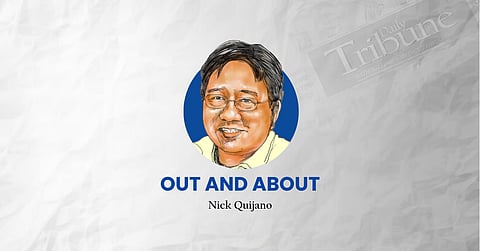
- NEWS
- the EDIT
- COMMENTARY
- BUSINESS
- LIFE
- SHOW
- ACTION
- GLOBAL GOALS
- SNAPS
- DYARYO TIRADA
- MORE

A national desperation was the palpable mood in last Sunday’s huge protests against corruption.
And, for the desperate thousands who took to the streets, they truly believed that if they individually kept silent, the country would have no future, making for an astounding change in political conduct in recent memory.
Announcing their protest in public places clearly also had the pronounced goal of inviting the participation of the larger public in saying enough is enough with the embezzlement of flood control funds.
From the desperate ranks, however, the loudest voices came from Gen Z and Millennials, whose significant and noticeable presence in street-level politics is now deserving of our full attention.
Significant because, as previous generations of street protesters knew so well, we would not get far bodily protesting the grave sins of the hopelessly corrupt ruling class without the young’s involvement and stamina.
Even more so, the presence of the young people on the streets showed they’ve now gone beyond the confines of our present public sphere, which had ignominiously splintered into countless individual social media feeds and where demagogues and charlatans abound and where news arrives as entertainment, if the news arrives at all.
The so-called terminally online young, in short, are shaking off the shackles dictated by their online world, swapping their digital footprints for tangible street-level politics, and are now seeking solidarity with other less-digitally inclined generations to confront the present ills of our politics and society.
The young, therefore, are beginning to see the point that the ongoing protests are about securing their future and that a big part of standing up for that future is physically showing up at protest rallies.
Yet, while the idealistic young’s street engagements are noteworthy, scores of aging cynical nihilists commonly dissuade them from taking control of their futures in the here and now.
Cynical nihilists who’ve normalized decayed fatalistic beliefs “that everything will die down and revert to the old system, and that people will forget and return to the patient misery of their lives,” as noted writer Ninotchka Rosca aptly put it.
Tired compromising beliefs which, once dissected for what they hide, are actually deceptions “about the political system that allows such abuses (corrupt officials stealing from disaster funds) to thrive,” as one political observer noted.
“Corruption,” the same observer said, “is not an accident. It is the predictable outcome of a system dominated by political dynasties and oligarchs who control both politics and the economy.”
At the same time, these tired beliefs reveal that for our typical cynical nihilist, our precarious democracy is a mere spectator sport, something they can just pick up and put down despite the high stakes involved. For them, democracy isn’t a work in progress involving ceaseless struggle to make it work.
So, instead of helping the young navigate and keep up with the raging issues alongside intensifying their efforts to fight the corrupt, they tell the young to merely shrug their shoulders, bow their heads, and do nothing.
Yet, if there was anything suggestive about last Sunday’s protests, also marked by spontaneous violence, it is the incontrovertible fact that protesting for a good, corruption-free government shows that aspects of our present exhausted political culture are fast evolving.
And, in those the young, sensing their future is at stake, want others — especially those spooked washed-up political opportunists strangling our public life and deserving of the garbage landfill — to seriously hear them out.
